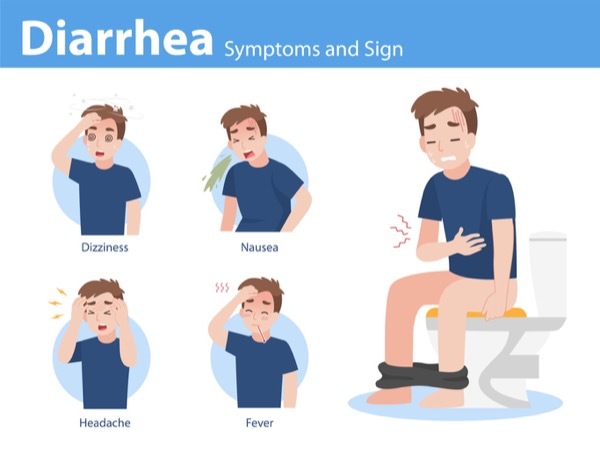Introduction:
Diarrhea is a common digestive issue that affects people of all ages. It’s characterized by loose, watery stools and often accompanied by symptoms like abdominal pain, cramping, and dehydration. While most cases of diarrhea are mild and resolve on their own, understanding its symptoms, causes, and treatment options is essential for managing the condition effectively. Nitazoxanide 500 mg and Nitazoxanide 200 mg medication is used to treat diarrhea caused by certain parasite infections of the intestines.
Symptoms of Diarrhea:
Diarrhea manifests through various symptoms, including:
- Frequent loose, watery stools
- Abdominal cramps and pain
- Nausea and vomiting
- Fever
- Bloating and gas
- Blood or mucus in stool
In severe cases, diarrhea can lead to dehydration, indicated by symptoms such as dry mouth, excessive thirst, dark urine, dizziness, and fatigue. Identifying these signs early is crucial for seeking appropriate medical attention.
Causes of Diarrhea:
Several factors can trigger diarrhea, including:
- Viral infections: Rotavirus, norovirus, and other viruses commonly cause acute diarrhea, especially in children.
- Bacterial infections: Consuming contaminated food or water can lead to bacterial infections like salmonella, E. coli, and campylobacter.
- Parasitic infections: Parasites like Giardia lamblia and Cryptosporidium can cause diarrhea when ingested through contaminated water or food.
- Food intolerances: Some individuals experience diarrhea due to lactose intolerance, gluten sensitivity, or sensitivity to artificial sweeteners like sorbitol.
- Medications: Antibiotics, antacids containing magnesium, and certain cancer treatments can disrupt the balance of gut bacteria, leading to diarrhea.
- Chronic conditions: Conditions like irritable bowel syndrome (IBS), Crohn’s disease, and ulcerative colitis can cause recurrent episodes of diarrhea.
- Dietary factors: Consuming spicy foods, fatty foods, or excessive amounts of caffeine or alcohol can irritate the digestive system and trigger diarrhea.
Treatment of Diarrhea:
The treatment of diarrhea depends on its underlying cause and severity. Here are some common approaches:
- Fluid replacement: Replenishing lost fluids and electrolytes is essential to prevent dehydration. Drinking plenty of water, clear broths, or oral rehydration solutions can help.
- Diet modifications: Following a bland diet consisting of easily digestible foods like bananas, rice, applesauce, and toast (BRAT diet) can help firm up stools and alleviate symptoms.
- Medications: Over-the-counter antidiarrheal medications like loperamide (Imodium) can provide temporary relief by slowing down bowel movements. However, these medications are not suitable for everyone and should be used with caution.
- Addressing underlying causes: If diarrhea is caused by a bacterial or parasitic infection, antibiotics or antiparasitic medications may be necessary. Managing underlying conditions like IBS or inflammatory bowel disease requires a tailored treatment plan prescribed by a healthcare professional.
- Probiotics: Adding probiotic supplements or foods rich in beneficial bacteria to your diet may help restore the balance of gut flora and alleviate diarrhea, especially if it’s related to antibiotic use.
Preventing Diarrhea:
While some causes of diarrhea are unavoidable, you can take steps to reduce your risk:
- Practice good hygiene: Wash your hands frequently, especially before eating or preparing food, and after using the bathroom.
- Ensure food safety: Cook meats thoroughly, wash fruits and vegetables, and avoid consuming unpasteurized dairy products or raw seafood.
- Drink safe water: When traveling to areas with poor sanitation, drink bottled or boiled water, and avoid ice cubes made from tap water.
- Be cautious with medications: Follow your healthcare provider’s instructions when taking antibiotics or other medications that can disrupt gut flora.
- Manage stress: Stress can exacerbate digestive symptoms, so practicing stress-reduction techniques like meditation, yoga, or deep breathing exercises may help prevent diarrhea episodes.
Conclusion:
While diarrhea is often a temporary inconvenience, it can be a sign of a more serious underlying condition, especially if it persists or is accompanied by severe symptoms. Understanding the symptoms, causes, and treatment options for diarrhea empowers individuals to take appropriate measures to manage the condition effectively and prevent complications. If you experience persistent or severe diarrhea, consult a healthcare professional for proper evaluation and treatment.


